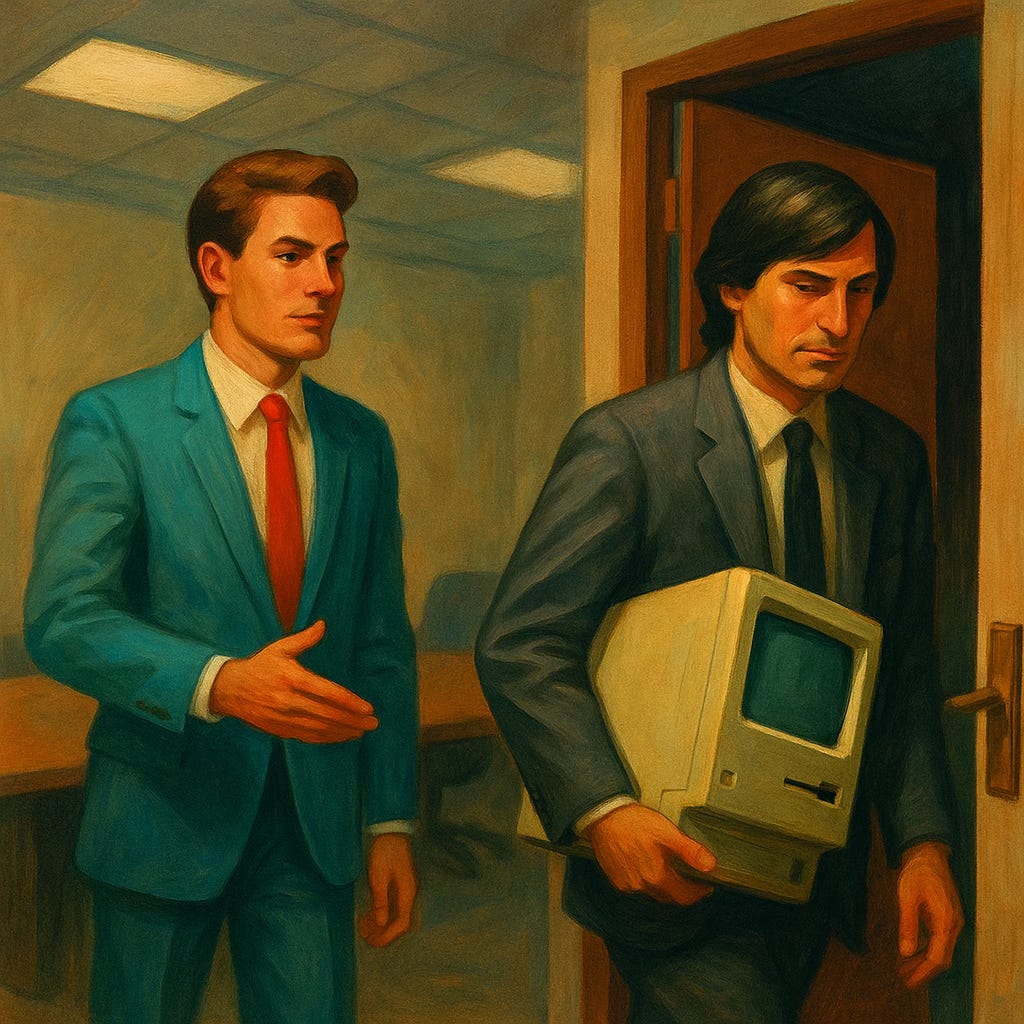When the Man Who Fired Steve Jobs Calls OpenAI “the Next Apple”
Or, Why the “Next Apple” Talk Proves We’re in a Bubble.
I’ll preface this by saying I’m an unabashed Apple fan. From the Apple IIe I grew up with to the Mac mini I’m using to type this, we go way back. Sure, I still grumble about the walled garden and the endless dongles, but there’s something to be said for a product that’s beautifully designed and—most of the time—just works.
I even bought Apple stock after getting my first iMac in 1997. I was completely smitten and knew Jobs would save the company. When I sold the shares in 2005 to buy our family’s first house, it felt like the responsible, adult thing to do. If I’d held on, that stock would be worth about eight million dollars today. So yes, I have a soft spot for Apple—and maybe a few emotional scars to match.
So you can imagine my reaction when I read that John Sculley—yes, that John Sculley, the CEO who pushed Steve Jobs out in 1985—had declared OpenAI to be Apple’s “first real competitor in decades.” I nearly spit my coffee across the kitchen table. The man who once steered Apple toward near-collapse now thinks he’s spotted its successor. History may not repeat, but it does love a callback.
Sculley made the comment at the Zeta Live conference, praising OpenAI’s rise and warning that Apple’s lag in artificial intelligence could threaten its dominance. He called this moment the dawn of an “agentic era,” when AI assistants will replace apps the way the iPhone replaced buttons. It’s a slick line—the kind that lands well on CNBC—but the comparison collapses under the weight of math.
Apple today is worth roughly $3.8 trillion. It earns tens of billions in profit every quarter from products that actually exist—iPhones, Macs, Watches, iCloud, the App Store. It’s a company built on design discipline, logistics genius, and a fan base that borders on religious.
OpenAI, meanwhile, carries an estimated $500 billion valuation, built almost entirely on speculation. One company prints cash; the other burns it. Apple could absorb OpenAI tomorrow and not even belch.
When Sculley calls OpenAI Apple’s peer, he’s not describing the world as it is; he’s describing the dream investors are desperate to believe. We’ve seen this movie before: the dot-com boom, the crypto gold rush—every cycle where optimism outpaces arithmetic. Back then, it was sock puppets and IPOs for companies with no revenue. Today, it’s “agentic systems” and sky-high valuations for startups still figuring out what they sell.
Sculley’s comment says less about OpenAI’s destiny than it does about where we are in the market cycle. When the man who fired Steve Jobs starts blessing the next messiah of tech, we’re not witnessing prophecy—we’re watching nostalgia dress up as foresight.
Apple, for all its flaws, remains a machine that turns engineering, design, and emotion into profit. OpenAI is a remarkable experiment, but right now it’s still a belief system with a negative balance sheet.
So no, John. OpenAI isn’t the next Apple. It’s the next reminder that every tech revolution starts as innovation and ends as inflation—of both numbers and egos.



